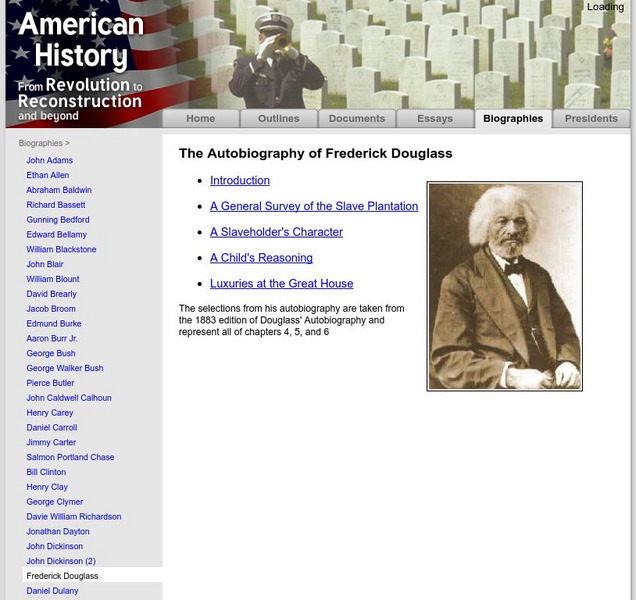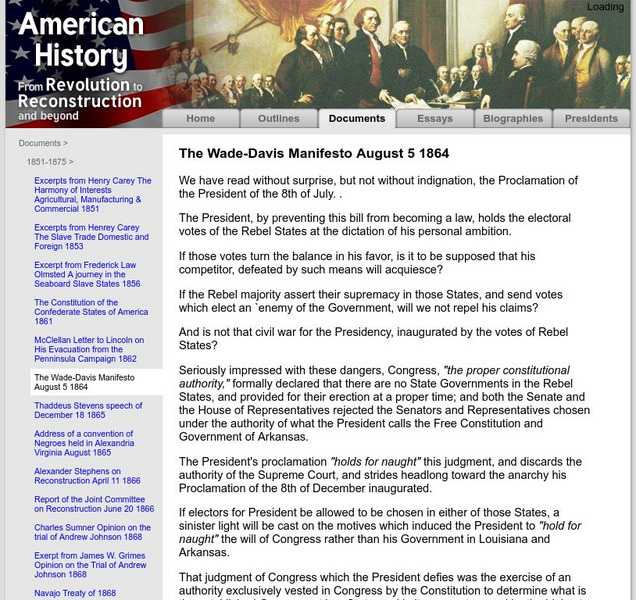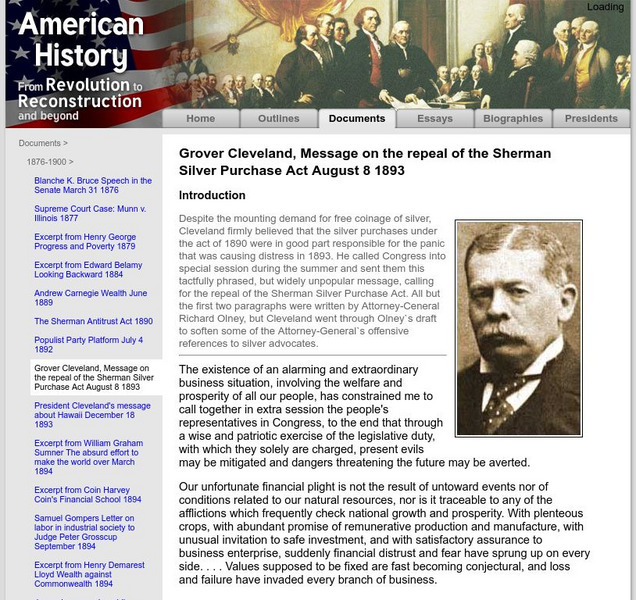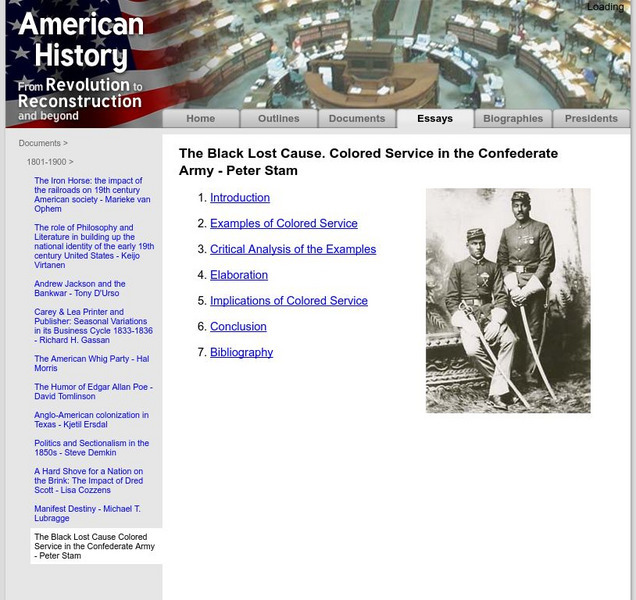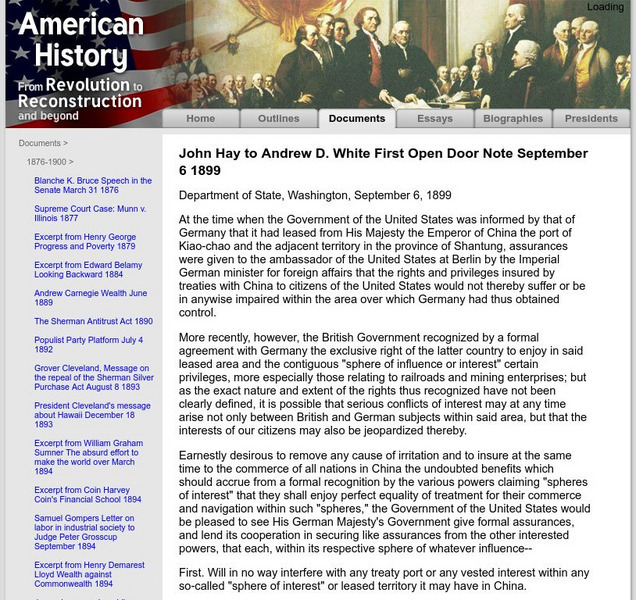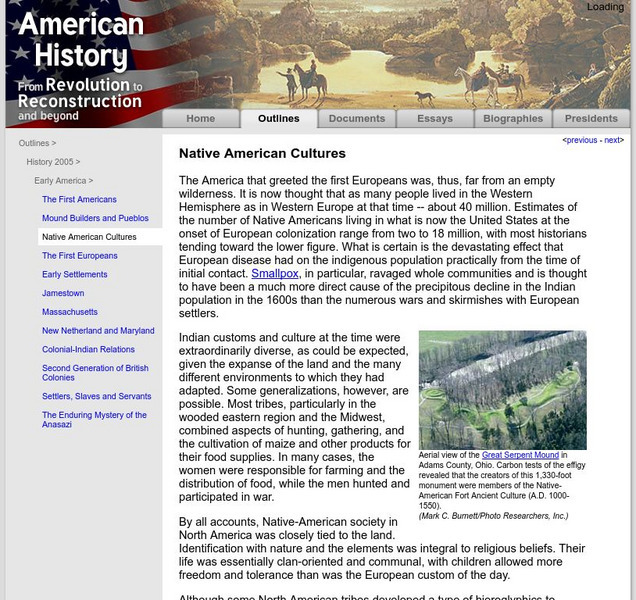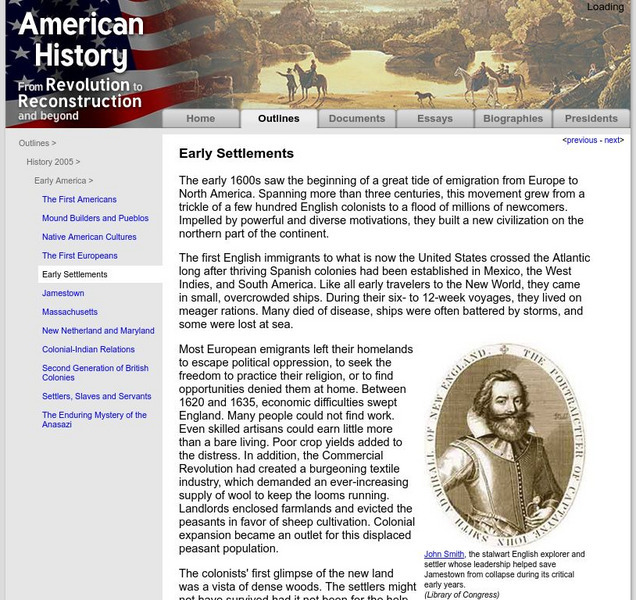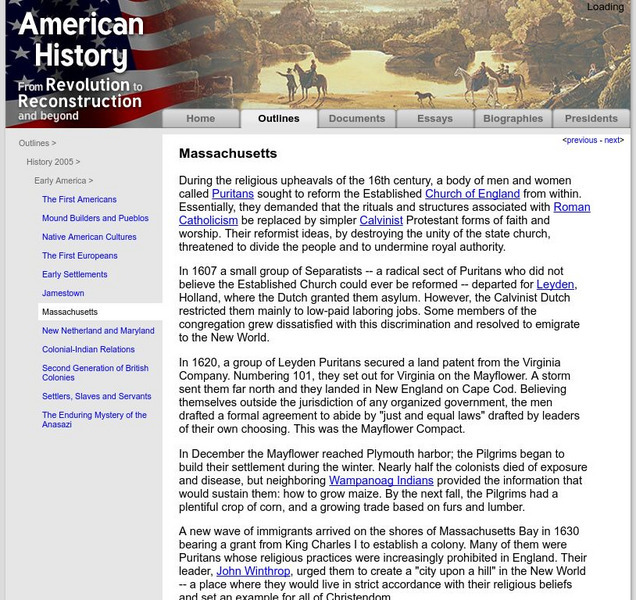University of Groningen
American History: Biographies: Frederick Douglass
This article provides extensive excerpts from "The Autobiography of Frederick Douglass." This is a lot of information about the great abolitionist and orator written by himself.
University of Groningen
American History: Documents: The Marshall Cases
Text of landmark Supreme Court cases presided over by Chief Justice John Marshall, that decided questions of how to interpret the U.S. Constitution. The cases took place between 1801 and 1825.
University of Groningen
American History: Documents: The Marshall Cases: Cohens v. Virginia
Read the text of the Supreme Court decision, Cohens v. Virginia, which was limited states' rights.
University of Groningen
American History: Biographies: William Blackstone (1723 1780)
A thorough biography of Sir William Blackstone. Blackstone is a recognized lawyer born in England and played an integral part of the development of the common law legal system in the United States during the Revolutionary War, and the...
University of Groningen
American History: Documents: George C. Wallace Speech: The Civil Rights Movement
View the complete speech by Alabama governor George Wallace condemning the Civil Rights Act.
University of Groningen
American History: Documents: President Cleveland's Message About Hawaii
In his message to Congress on December 18, 1893, President Cleveland rejected the idea of Hawaiian annexation and encouraged Congress to continue the American tradition of non-intervention.
University of Groningen
American History: Documents: William J Bryan Cross of Gold Speech July 8, 1896
Read William Jennings Bryan's speech delivered at the Democratic National Convention in 1896; it is considered one of the greatest political speeches in American history.
University of Groningen
American History: Documents: Slaughter House Cases 1873
Review background information about the Slaughter-House Cases then read the complete text of the majority opinion of the court and also the dissenting votes.
University of Groningen
American History: Documents: The Wade Davis Manifesto August 5 1864
View the complete text of the Wade-Davis Manifesto which describes a bill proposed for the reconstruction of the South. The bill passed both houses but was then vetoed by President Lincoln.
University of Groningen
American History: Documents: The Canandaigua Treaty of 1794
Read the complete text of the Canandaigua Treaty signed by President Washington and the tribes of the Six Nations after the Revolutionary War; it was a treaty of peace and friendship and established land rights.
University of Groningen
American History: Documents: Thomas Paine the Age of Reason (1794)
Presented is the complete text of Thomas Paine's The Age of Reason written in 1794.
University of Groningen
American History: Documents: Proclamation of Neutrality 1793
The Proclamation of Neutrality was a formal announcement issued by President George Washington in May 1793, declaring the nation neutral in the conflict between France and Great Britain. It threatened legal proceedings against any...
University of Groningen
American History: Documents: Repeal of Sherman Silver Purchase Act
Read President Grover Cleveland's message to the Congress in 1893 in which he advocated for the repeal of the Sherman Silver Purchase Act from 1890. His objections to it are very well laid out.
University of Groningen
American History: Essays: Black Lost Cause. Colored Service in Confederate Army
This well-researched extensive essay by Peter Stam looks at the issue of the number of African Americans serving in the Confederate Army as soldiers. By examining information from many historians, some of whom turn out to be unreliable,...
University of Groningen
American History: Documents: Documents: Open Door Note
Read the note Secretary of State John Hay sent to Andrew White, ambassador to Germany, spelling out the United States' position on keeping trade with China open despite the claims of European countries to various ports in China.
University of Groningen
American History: Outlines: Mound Builders and Pueblos
The first Native-American group to build mounds in what is now the United States often are called the Adenans. They began constructing earthen burial sites and fortifications around 600 B.C. Some mounds from that era are in the shape of...
University of Groningen
American History: Outlines: Native American Cultures
The America that greeted the first Europeans was, thus, far from an empty wilderness. It is now thought that as many people lived in the Western Hemisphere as in Western Europe at that time -- about 40 million. Estimates of the number of...
University of Groningen
American History: Outlines: The First Europeans
The first Europeans to arrive in North America -- at least the first for whom there is solid evidence -- were Norse, traveling west from Greenland, where Erik the Red had founded a settlement around the year 985. In 1001 his son Leif is...
University of Groningen
American History: Outlines: Early Settlements
The early 1600s saw the beginning of a great tide of emigration from Europe to North America. Spanning more than three centuries, this movement grew from a trickle of a few hundred English colonists to a flood of millions of newcomers....
University of Groningen
American History: Outlines: Jamestown
The first of the British colonies to take hold in North America was Jamestown. On the basis of a charter which King James I granted to the Virginia (or London) company, a group of about 100 men set out for the Chesapeake Bay in 1607....
University of Groningen
American History: Outlines: Massachusetts
During the religious upheavals of the 16th century, a body of men and women called Puritans sought to reform the Established Church of England from within. Essentially, they demanded that the rituals and structures associated with Roman...
University of Groningen
American History: Outlines: New Netherland and Maryland
Hired by the Dutch East India Company, Henry Hudson in 1609 explored the area around what is now New York City and the river that bears his name, to a point probably north of present-day Albany, New York. Subsequent Dutch voyages laid...
University of Groningen
American History: Outlines: Colonial Indian Relations
By 1640 the British had solid colonies established along the New England coast and the Chesapeake Bay. In between were the Dutch and the tiny Swedish community. To the west were the original Americans, then called Indians.
University of Groningen
American History: Outlines: Second Generation of British Colonies
The religious and civil conflict in England in the mid-17th century limited immigration, as well as the attention the mother country paid the fledgling American colonies.


